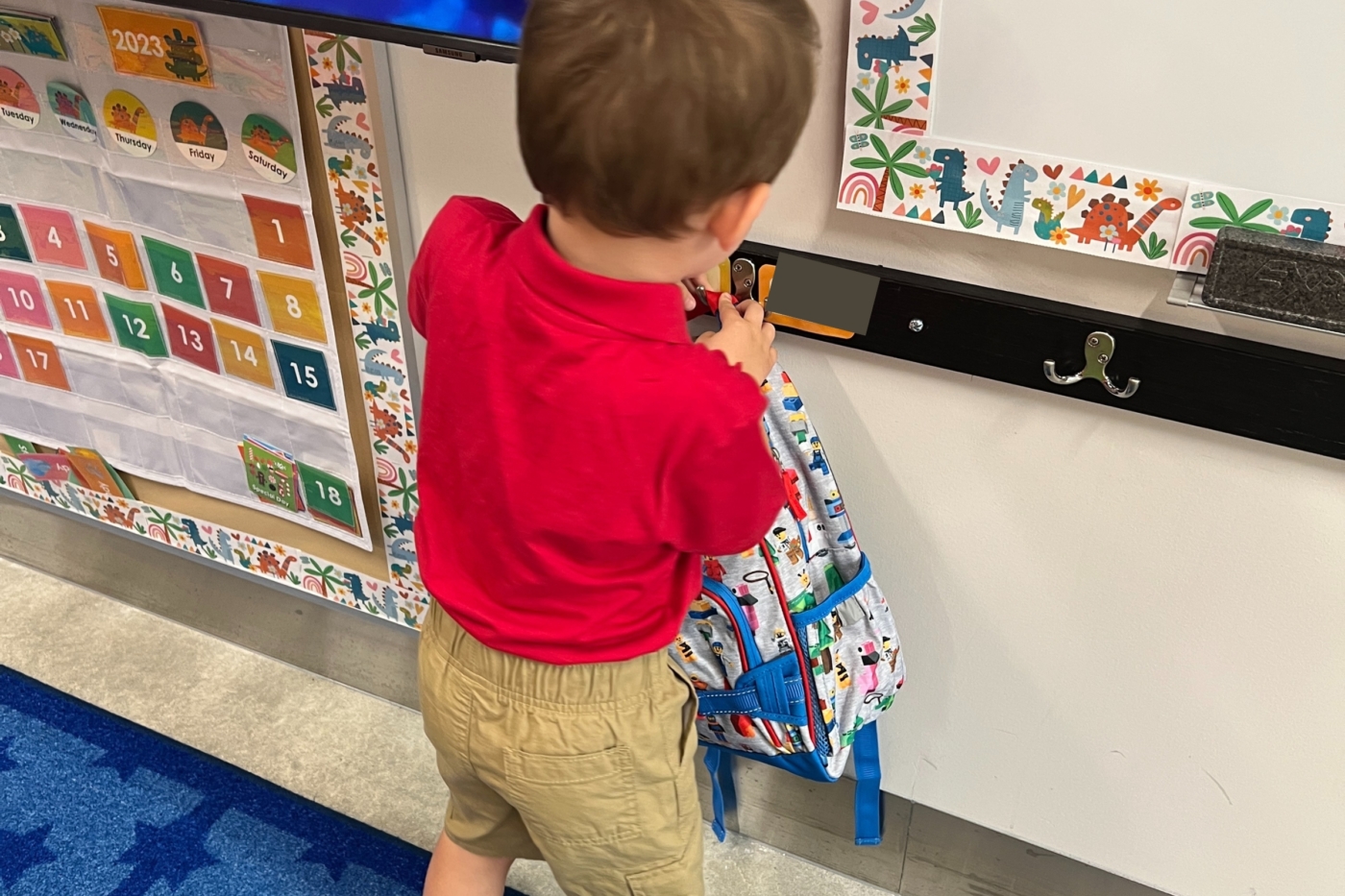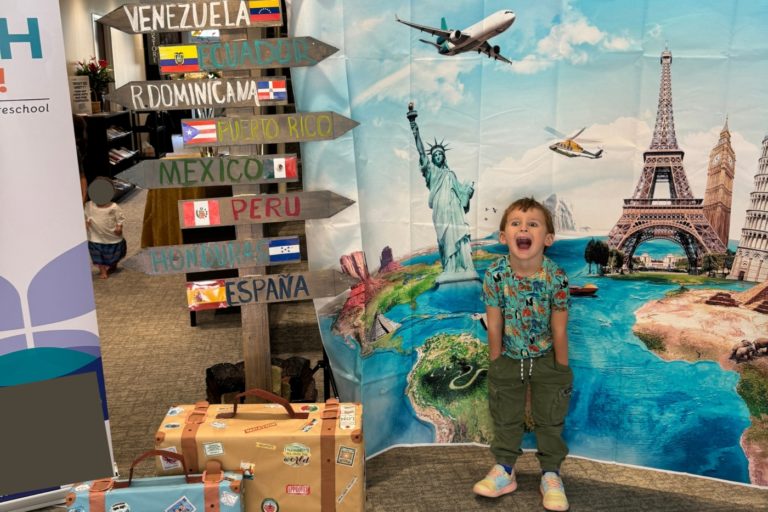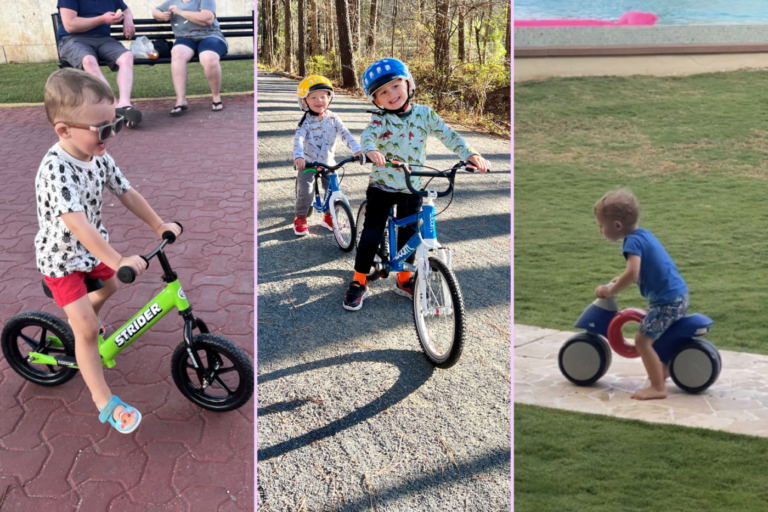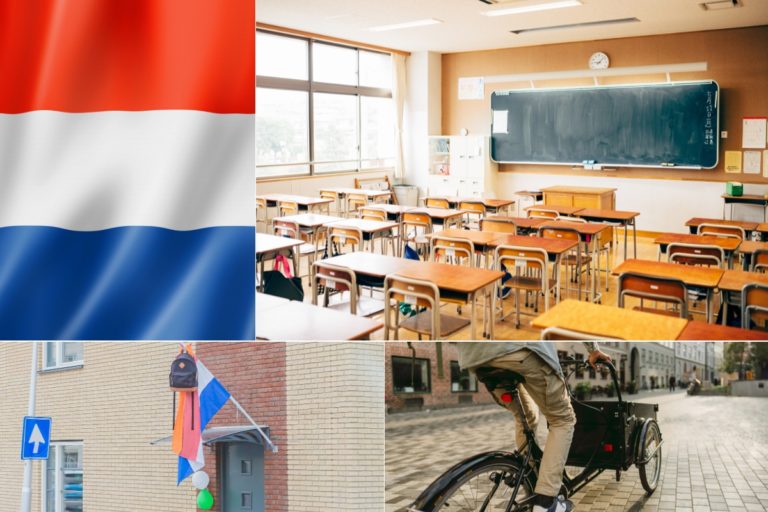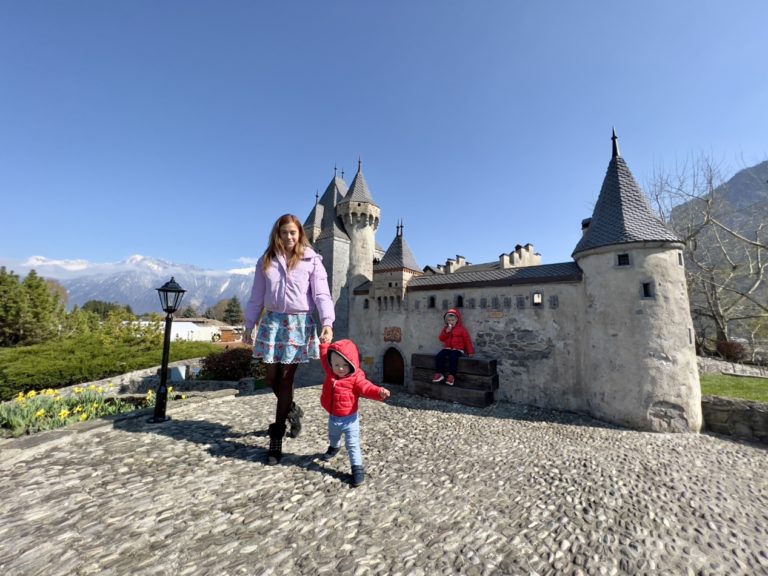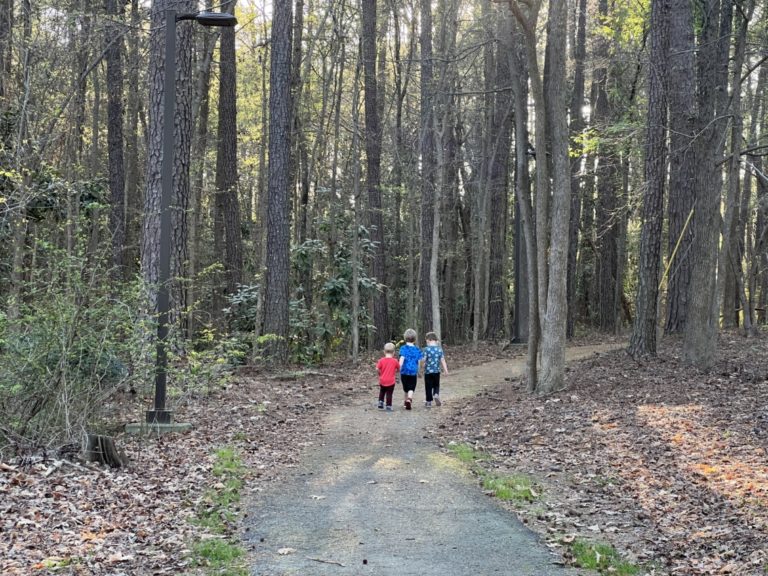Kindergarten Readiness: When Do Kids Start School Around the World and What Works Best
Most kids in the US start elementary school at the Kindergarten level, despite education being compulsory only from 1st grade onwards. Kids need to turn 5 before a cutout date – usually either August 31st or September 1st of the starting year.
Kindergarten readiness and standards have become increasingly more academic in the United States. The fearmongering of parenting told that their kids should recite the letters and numbers early on, because otherwise they’ll be illiterate later on. It’s causing many kids to miss out on more important than you think creative and free play, as even barely 3-year-olds are forced to learn the alphabet through educational toys.
In the US kids are expected to do so at the age of 4 at PreK (Pre-Kindergarten) level. Ironically, even though it’s been proven that starting early does not guarantee success later, most American parents are freaked out that their kids aren’t ready for Kindergarten in the sense of focusing on academic skills.
Unsurprisingly, many parents started looking into other schooling systems and wondering when kids start school in different countries. In European countries, kids don’t start formal education until the age of 6 or even 7. Formal education as per reading, writing, and math skills.
Finnish Education System
Especially the Finnish education system is always interesting to parents, as it’s usually presented as mostly play-based with no homework. According to the Finnish National Core Curriculum for Early Childhood and Care, physical education is key to a child’s development.
Many American influencers are even trying to push unschooling the younger kids claiming that since the kids in Finland don’t start school until 7 and Finland is the world’s most literate nation, there’s no need for traditionally educating the children before that.
Ironically, the Finnish education system does not mean unschooling so unless you actually live in Finland it does not mean it will work the same way. It’s quite the opposite actually, because most children arrive at school in Finland already having the basic literacy and math skills before starting school. How come?
Simply because almost all children (90-95% statistically) attend preschools from an early age. While they don’t sit at the desk and practice ABCs, Finnish kids are learning through play, whether free or structured. More importantly, they also build their interpersonal skills, learn to be self-reliant and maintain friendships and connections.
By the time the kids get to school they know what can be expected of them. They know how to talk to teachers and interact in groups. There’s no crying for mommy, or not knowing how to sit and listen issue so when the time comes the kids absorb the knowledge quicker as the teacher doesn’t have to deal with bringing the kids up to the same level of non-academic skills.
Do Finnish kids truly have no homework? Not quite. The “no homework” rumor comes from the fact that the law does not require homework, but instead devolves the power to issue homework to individual schools. Many schools actually execute this right and give homework to students.
Why Is Preschool Desirable in Other Countries, but Not the US
The biggest difference between the US and UK vs continental Europe is that preschools are actually desirable. While not attending a preschool is considered privileged and better in the US, in Europe that would be very strange.
European parents advocate for kids attending preschools and encourage their children to get into the group setting to learn social skills and interact with their peers. They know that placing your child in an active environment with other same-aged peers can help them develop critical social skills. Most kids start daycare around 12-24 months and by 3 almost all kids attend some sort of preschool – whether full or part-time at least.
In various countries, a public preschool or nursery is usually a better one, than a private establishment. Why? Because a preschool educator is an actual job in France, Netherlands, or Poland. A person taking care of children has years of experience and completed a degree in early education, often followed by some additional courses.
On the contrary, in the US or UK daycares and preschools have temporary teachers who complete a few hours of basic training. Some preschools have teachers changing multiple times a year, as it’s treated as a temporary job.
I remember when touring a fancy preschool they bragged that their staff had been with them for 2 years, which I guess was an achievement. Versus when a preschool in Europe has a staff for only 2 years it’s considered inexperienced.
Unsurprisingly, with often underqualified people it’s hard to put trust into a preschool. Not to mention, most places in Europe offer free or subsidized preschool. In the US the average cost is about $250 a week, but in bigger areas, it’s hard to find anything for even under $350.
As a result, less than 50% of US kids go to preschool. When they finally enter Kindergarten at the age 5, many kids don’t have the social skills and experience separation anxiety being in an unfamiliar environment with strangers.
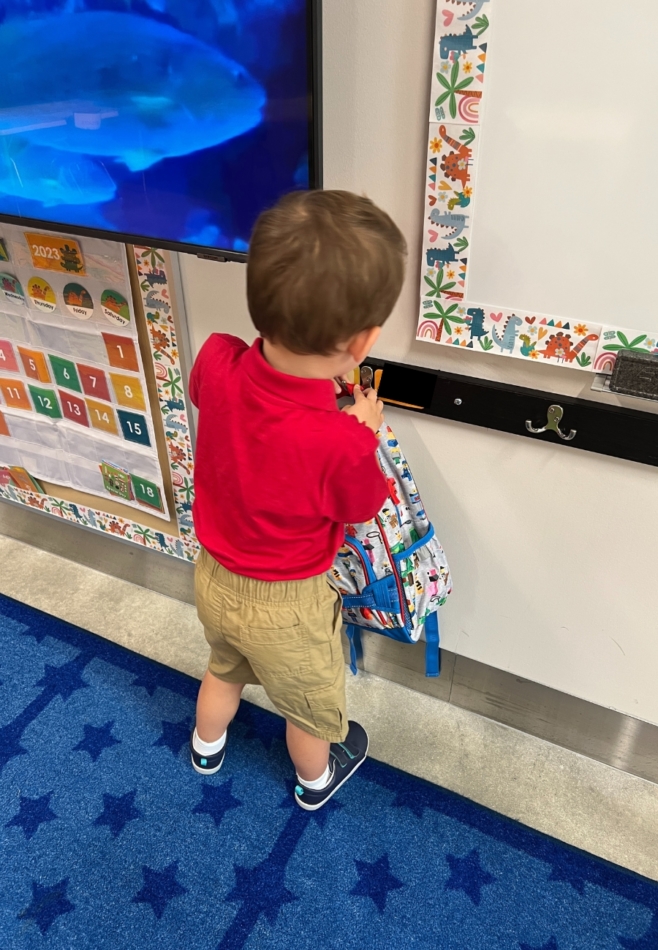
Understanding Readiness for School
In the early 1990s, 9% of American children were redshirted, meaning they started kindergarten a year later. These days, that number more than doubled to 25%, according to U.S. Census data.
Are 25% of the kids childish for their age or too impatient to start? Not quite. These days parents often do it to give their kids an advantage in sports or prepare them better academically.
Ironically, despite the research showing that by 2nd grade the advantage of older kids evens out with those who started kindergarten “on time”, according to their age.
What Do Kids Learn Before Going to School Around the World
In continental European preschools children might seem like they’re not learning absolutely anything.
American parents coming to Germany often describe the state of preschool classrooms as chaos with children running around and goofing, with certain weeks having zero organized activities on purpose – to teach the kids to be bored and find something to do.
In Poland, kids aren’t sitting at desks and having formal lessons until they’re 7, but learning in a relaxed environment such as 15-minute carpet activities, crafts, and group projects at preschools. They sing, play, dance, make arts and crafts, visit parks and woods.
In the Netherlands, children learn exclusively through play and small activities until the age of 6. There’s no formal learning how to read or write until then. Before they learn patience, how to put on their coats, be fully independent in the toilet, or care for their own belongings.
Kindergarten readiness isn’t as academic as it’s often portrayed.
In fact, this is exactly why more and more children drop out of kindergarten after a few weeks to wait another year. This isn’t caused by the inability to read and write, or knowing what a rhombus is, but the lack of socio-emotional skills that are MUCH more important and overlooked.

What to Focus on For Kindergarten Readiness?
In short, you need to prepare your child to be an independent member of society and be ready. Some kids might be ready for all of it at 4 or even earlier, while others might still struggle at 6.
What does that mean? What skills are important?
Be Bathroom Independent
Many parents falsely claim that their child is fully potty trained when they’re not. A might not use diapers, but if they need to be reminded to go potty, can’t wipe themselves, or dress or undress on their own, then they’re not fully bathroom independent.
At school nobody can help children in the bathroom, so this is crucial. You don’t want to have a child to have accidents or sit with a poopy butt all day.
Can Dress Themselves
There are limited numbers of breaks in between classes and recess or carpool. It might seem silly, but many kids starting school don’t know how to dress themselves. A teacher cannot help a whole class to put on jackets and zip them.
Make sure that your child knows how to button something, use a zipper, know how to tie their shoes and put them on the correct feet, and most importantly put on their own jacket.
Able to talk to strangers, be understood, and follow directions
Things about it, even if your child attends a preschool kids are normally sitting in one classroom with one or two teachers. At school, kids might be changing classrooms, different teachers will cover some subjects, while others are taking care of them during recess, carpool, or bus service.
A child ready for kindergarten needs to be able to reach out for help and express their needs or issues. Some schools make kids buy their own lunch at the cafeteria and a kindergartener needs to be able to do it all.
Know How to Speak the Language of Instruction in School
This applies purely to bilingual families, but it’s something very important to mention. If you speak another language at home make sure that your child is ready to properly use the language of instruction at school. Attending a bilingual preschool might not necessarily help much when it comes to the advancement of this language as they often gain only passive knowledge of the language – without an ability to communicate.
Many parents conclude that, especially with English, kids will learn it once they start school. While that’s true and kids will learn, the child will struggle if they cannot express themselves well and their language skills aren’t as advanced as other kids.
Know Social Skills When Interacting with Their Peers
Playing with other kids at supervised playdates is one thing, but going to school is a whole different story and recess is usually full of drama. A child needs to know how to share, suggest solution to social disagreements and if necessary, debate them. You don’t want your child to keep reporting to the teacher that his friend isn’t nice to him. Teachers simply don’t have time for this.
The kids need to mind their space when working on their things. Even the simplest thing like asking and allowing to share a blue crayon is crucial.
Be Okay If Losing
Many preschools always make sure that every child is treated the same way. Kids get the same meals, there are no grades or competitions. Things change in schools.
Your child will know if someone gets a better grade. Someone might be faster in PE class. For the sake of your child and his sanity (not to mention the other kids and teacher) you don’t want them to have a meltdown if they realize that they didn’t win this time. Kids need to know that being disappointed is fine.
A child needs to know how to self-control and calm down on their own.
Know Their Name and Be Able to Recognize It
Your child doesn’t need to write their name before starting kindergarten, but as many things are signed in the classroom they need to know that their name looks like Dylan and not James, for example.
Knowing their last name and names of their parents is also important, in case of emergency.

